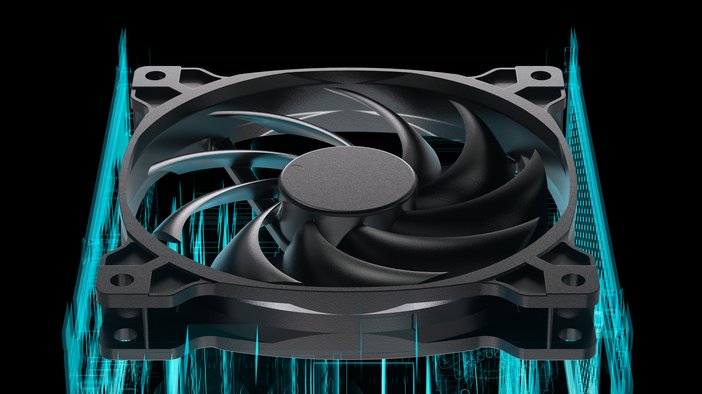For businesses looking to secure reliable and high-performing hosting solutions, dedicated servers in Germany are an attractive option. Known for its advanced infrastructure and strict data privacy laws, Germany provides an ideal environment for dedicated hosting. However, understanding the costs and what you get for your investment is essential for making an informed decision. This guide will outline the costs of buy dedicated server in Germany and what to expect in terms of features, services, and potential add-ons.
1. The Basics of Dedicated Server Pricing
Dedicated server costs vary based on several factors, including hardware specifications, network speed, managed services, and additional security features. Here’s an overview of pricing tiers and what each level typically includes:
- Entry-Level Servers (€50–€150/month): Basic dedicated servers suited for low to moderate workloads, such as small websites, lightweight applications, or staging environments.
- Mid-Tier Servers (€150–€300/month): These servers include upgraded CPUs, larger memory capacities, and faster storage options, making them ideal for mid-sized businesses or applications with steady traffic.
- High-Performance Servers (€300–€800/month or more): Equipped with premium CPUs, high-capacity RAM, SSD storage, and additional features, these servers are designed for resource-intensive applications, large databases, and high-traffic websites.
- Custom or Enterprise Solutions (€800/month and up): These options provide top-of-the-line hardware with custom configurations, dedicated support, and advanced security, perfect for enterprises with specific hosting requirements.
2. Key Cost Factors to Consider
The following are the primary components that impact the cost of dedicated servers in Germany:
a. Hardware Specifications
- CPU (Processor): Servers with advanced CPUs like Intel Xeon or AMD EPYC are more expensive, but they offer the processing power needed for high-performance applications.
- RAM (Memory): Servers can range from 16GB to over 512GB of RAM, depending on requirements. More RAM is essential for handling multiple applications or large databases.
- Storage (SSD vs. HDD): Solid-state drives (SSDs) offer faster read/write speeds than traditional hard drives (HDDs), making them more expensive. Some providers offer hybrid storage options to balance cost and performance.
- Bandwidth and Network Speed: Higher bandwidth allocations and faster network connections (up to 1 Gbps or more) come at a premium but are necessary for high-traffic sites or real-time applications.
b. Managed vs. Unmanaged Hosting
- Unmanaged Servers: Unmanaged servers are typically cheaper as the business is responsible for maintenance, updates, and troubleshooting. This option is ideal for enterprises with an in-house IT team.
- Managed Servers: Managed servers come with additional support, where the provider handles server monitoring, software updates, and technical support. Managed hosting generally costs €50–€200 extra per month, but it’s a valuable option for businesses without dedicated IT staff.
c. Security and Compliance Costs
- DDoS Protection: Basic DDoS protection may be included, but more advanced protection incurs additional costs, typically €10–€50 per month, depending on the level of protection.
- Firewalls and Intrusion Detection: Some providers offer dedicated firewalls or intrusion detection systems as add-ons, which could add €10–€100 or more to the monthly fee.
- Data Privacy Compliance: German data centers often adhere to GDPR standards, and while compliance may be built into the base price, enterprises in regulated industries may require additional compliance measures at a premium.
d. Backup and Disaster Recovery Solutions
- Backup Storage: Many providers offer dedicated backup storage space for an additional fee. Backup costs range from €10–€100 monthly, depending on storage requirements.
- Disaster Recovery Options: Advanced disaster recovery plans, including automatic failover or geographically redundant backups, are typically priced as premium services and can add significant costs, often starting from €50–€200 per month.
e. Support and Service Level Agreements (SLAs)
- 24/7 Support Availability: Some providers charge for around-the-clock support or multilingual support. This additional cost could range from €20–€100 per month.
- Service Level Agreements: SLAs guaranteeing uptime (e.g., 99.9% or 99.99%) and response times can affect the cost. Higher SLAs often command a premium, ensuring compensation for extended downtime but also raising monthly fees.
3. Expected Add-On Services and Their Costs
In addition to the core components, German dedicated server providers often offer add-ons to enhance server performance, security, and management. Here’s what to expect:
- Operating System Licensing: Linux options are often included at no extra cost, while Windows licenses typically add around €20–€50 per month.
- Control Panels (e.g., cPanel, Plesk): A control panel for easier server management may cost €10–€40 per month.
- Data Center Location: Some providers offer options to choose a specific data center within Germany (e.g., Frankfurt, Berlin) for improved latency or compliance requirements, which may come with an additional fee.
- Regular Monitoring and Reporting: Advanced server monitoring tools for tracking performance, resource usage, and security status can add €10–€30 monthly.
4. Cost Comparison: German Dedicated Servers vs. Other Locations
Hosting costs in Germany are competitive, especially when considering the quality of infrastructure, data privacy, and central location in Europe. Compared to U.S.-based servers, German servers might be slightly more expensive due to stricter data privacy laws and high-quality data centers. However, German hosting providers often offer packages designed for European markets, with low-latency connections across Europe, which may provide a better overall value for enterprises targeting European customers.
5. Estimating Total Monthly Costs
Based on the factors above, here’s a breakdown of typical costs for different types of German dedicated servers:
- Basic Server (Unmanaged): €50–€100/month
- Standard Server (Unmanaged, with backup and DDoS protection): €150–€300/month
- Advanced Server (Managed, with high-end CPU, high RAM, SSD, DDoS, and backup): €400–€800/month
- Enterprise Server (Custom solution with all add-ons and premium support): €800/month and up
6. Tips for Managing Dedicated Server Costs in Germany
- Identify Essential Features: Only pay for necessary features. For instance, if you have an in-house IT team, consider an unmanaged server.
- Choose Customizable Plans: Look for providers that offer flexible plans, allowing you to scale RAM, storage, and bandwidth as your needs evolve.
- Consider Long-Term Contracts: Many providers offer discounts for long-term commitments, so if you plan to use the server for an extended period, this could reduce monthly costs.
- Compare Managed vs. Unmanaged Costs Carefully: If your business needs managed support, ensure you’re getting good value for the added cost by checking the support level and response times.
Conclusion: What to Expect When Buying a Dedicated Server in Germany
Germany’s dedicated servers offer a balance of performance, data privacy, and reliability, making them ideal for businesses with substantial hosting needs in Europe. While the cost may initially appear high, the investment in a German server is offset by the benefits of low latency, excellent support, and compliance with data protection standards.
With prices ranging from €50 for basic setups to over €800 for custom enterprise solutions, understanding your enterprise’s requirements and focusing on essential features can help you find the right dedicated server without overspending. By choosing a German dedicated server, businesses gain a reliable, secure, and high-performance hosting solution that supports growth and delivers value in the competitive European market.



